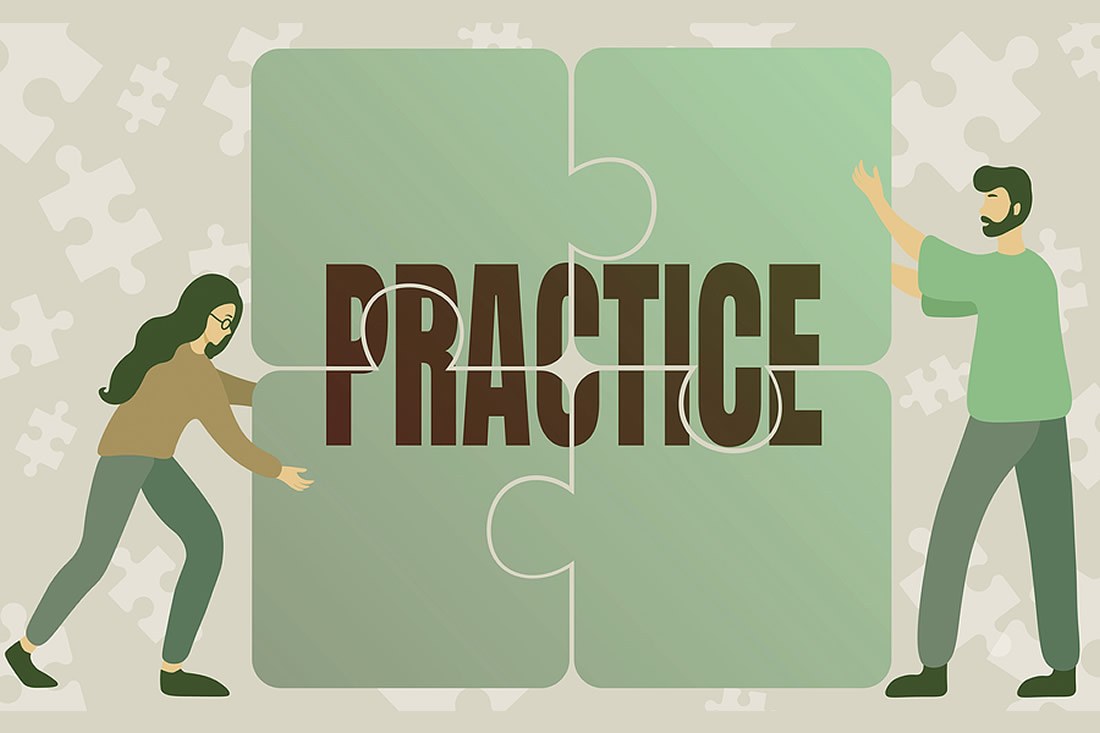You Weren’t Born a Fundraiser – It Takes Practice!

The idea of practicing something gets an undeserved bad rap. I suspect it probably comes from childhood, when a parent pushed you to practice the piano or practice penmanship or practice shooting hoops.
It seemed like drudgery.
But from the perspective of adulthood, the concept of practicing a skill takes on a new light.
Fundraising Takes Practice – Lots of It
In recent weeks, Amy and I have featured special guests on our weekly Campaign Conversations live webinar — and both of them have advocated practicing. (You can hear the recordings on our All About Capital Campaigns podcast.)
Practicing While Doing it For Real
Training guru, Andy Robinson, knows that practicing solicitation skills not only makes you better at them, but it puts you in the wonderful position of asking donors to help you improve your skills.
You can actually practice a skill while you are doing it for real. Take soliciting a gift, for example.
If you want to work on your skills, all you have to do is to let the person you are soliciting know that you’re building your skills and that you’d like his or her feedback about what worked and what didn’t after you ask them for a gift.
Be sure to tell them that even though you’re practicing, it’s going to be a real solicitation. It’s just that you’re going to ask for feedback afterwards.
Putting yourself in the position of learner rather than expert will help put both you and your donor at ease. If you have a sense that it’s not going well, you can simply stop and try again. You and the donor may actually have fun discussing what works and what doesn’t.
Our guest, Andy, is a master trainer and in the podcast episode, he not only talks about the importance of practice, but he outlines some very effective training exercises you can try with your staff and volunteers. Check out the full podcast episode here:
Podcast: Why it’s Critical for You to Improve Your Training Skills »
Practicing Using Mini-Speeches
Our next Campaign Conversations guest was Jezra Kaye, a well-known speaking coach. In her Toolkit Talk session, Jezra described how to create a short mini-speeches to use as the basis of the solicitation process.
Jezra also recommends practice, and lots of it. In particular, she suggests that you create your mini-speech and practice it over and over until it is well-grooved in your brain. (More on this in the next section.)
Don’t miss Jezra’s guest spot on our weekly podcast:
Podcast: How to Put Your Best Self Forward – Better Presentation Skills »
3 Helpful Tips for Practicing for Fundraising
Jezra Kaye’s book, Speak Like Yourself, offers a number of excellent tips for practicing. Here are a few that will help you improve your mini-speech.
1. Practice Out Loud
Once you know what you are going to say, stop editing and start practicing. Put down the pen and say the words out-loud. Go a step farther, and say the words to yourself in the mirror. Listen to yourself say those words.
2. Practice Slowly
Don’t just let the words tumble out. Say them so that each word and each sentence feels leisurely. Force yourself to pause at the end of each sentence.
3. Practice Daily
Try short, frequent practice sessions until your little speech feels comfortable and natural. When it starts to feel comfortable, try it out with a friend or colleague. If you have the will, record yourself and after a bit of time listen to yourself.
Practice = Progress, Not Perfection
The old adage, “Practice Makes Perfect” has the right degree of optimism, but the message has always seemed a bit off. Certainly, the more you practice, the better you’ll get. But don’t make perfection the enemy of progress.
In the end, practice may never make you perfect (and that’s okay), but it will definitely help you build your skills. And building your skills will undoubtedly make you more comfortable when you ask for gifts.
So, with that… practice, practice, practice!



Leave a Comment